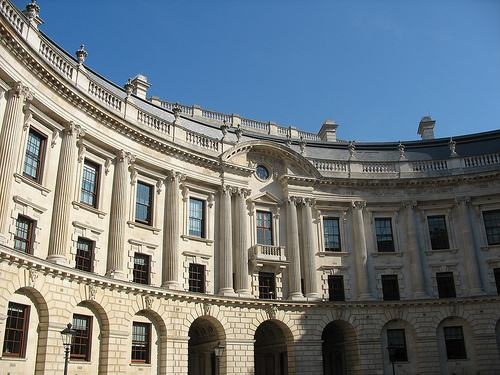Phillip Hammond has delivered his first Spring Statement today.
The Chancellor used the event to mainly discuss the macro-economic picture for the UK.
Read more about the Spring Statement announcements HERE.
Below is a round up of reaction so far from financial services professionals.
Steven Cameron, Pensions Director at Aegon
“We’d been told to expect no new policy announcements in the Chancellor’s first ‘Spring Statement’ and that’s precisely what we got.
“The updated forecasts of lower price inflation and a return to real earnings growth will have knock-on implications for future triple lock increases to the state pension. And there could be implications for final salary pension scheme funding which is impacted positively by lower price inflation but negatively by higher earnings growth for members who are still building up benefits.
“While automatic enrolment means 9 million extra employees are saving for their retirement through workplace pensions, the self-employed are excluded. With the Chancellor saying the Conservatives are the champions for small businesses, we need new policies to stop self-employed becoming second class citizens in retirement.
“However, as we enter the new tax year, there are a raft of changes announced previously. These include the first increase to the pension lifetime allowance since 2016, increases in auto-enrolment minimum contributions, changes to tax bands, changes to income tax rates for those in Scotland, and cut in the tax free dividend allowance. For many, there will be benefits in seeking financial advice.”
Laith Khalaf, Senior Analyst, Hargreaves Lansdown
“Philip Hammond is feeling particularly Tigger-like apparently, but there’s no honey today for public services, more a hint of some honey tomorrow in the Autumn Budget later this year.
“That promise is based on current economic tailwinds continuing until then, and not being snatched away by the vagaries of economic forecasting. In other words, don’t count your chickens just yet.
“The pound rose on currency markets in reaction to the improved economic forecasts, in particular the expectation that real wage growth will return to the UK this year, raising the prospects for higher interest rates.
“There’s not a great deal of reaction on the stock market, reflecting the stripped-down nature of the statement and the lack of any clear policy changes affecting individual companies.
“Despite the upbeat tone from the Chancellor, the UK is clearly out of favour as an investment destination for both domestic and overseas investors. In particular, retail investors continue to withdraw money from funds investing in UK shares, preferring international markets instead.
“While there are clearly risks to the UK economy, the current bout of extreme pessimism towards the UK stock market looks overcooked. The UK is home to a diverse range of companies, many of whom pay a decent dividend, and it shouldn’t be ignored by investors looking for a home for their money.”
Russ Mould, AJ Bell Investment Director
“Although Chancellor Philip Hammond failed to stick to the planned 15-minute script, he stayed ‘on message’ otherwise, reaffirming the Government’s commitment to reducing the annual budget deficit and the £41 billion annual interest bill on the overall national debt.
“Even if the stock market looks to be shrugging, the debt markets look to be pleased, judging by how the yield on the 10-year Gilt, or Government bond, has fallen back below 1.50% today, well below February’s 1.65% high.
“The Office for Budget Responsibility’s minor cuts to its estimates for inflation for 2018-19 and 2019-20, to 1.8% and 1.9%, may help a little on this front, too, also giving the Bank of England breathing space when it comes to its latest interest rate decision next Thursday.
“All of this helps anyone with a mortgage, at least indirectly, so neither the Chancellor’s long-term debt-reduction policy nor his statement today should be taken lightly.
“The healthier the nation’s finances are, the more cheaply the Government can borrow (as lenders will be more confident of ultimately getting their money back) – and the interest rate at which the Government can borrow that forms the base of the calculation that sets the cost of mortgages.
“Anyone with a home loan may therefore get some knock-on benefits from today’s statement - providing the OBR is correct in its assessment of inflation and an unexpected economic downturn does not blow the budget deficit reduction forecasts off course.
“That is perhaps the main danger to the Chancellor’s debt reduction and spending plans. The UK has already generated eight straight years of GDP growth since 2010 and the OBR is predicting five more. Even if their forecasts of 1.3% to 1.5% a year are hardly rip-roaring that implies an usually long economic upturn and one that is still reliant on cheap debt and Bank of England support to keep it going.”
Schroders' Chief Economist Keith Wade
“For what was meant to be a simple economic statement, the Chancellor turned much of the first Spring Statement into a political opportunity to have a dig at Labour with barbs about red books and oncoming trains.
“Certainly he did have an opportunity to unveil stronger growth for this year alongside a forecast of UK inflation falling back to target by the end of the year. Government borrowing has returned to surplus, excluding investment, and debt is set to peak. All good news.
“However, much of this was anticipated and it is still fairly cautious with only a modest upward revision to growth of 0.1% to 1.5% this year. We should not be surprised: it’s too early in the political cycle for anything more bullish and the Chancellor himself said that forecasts are there to be beaten.
“No mention though of the UK being the weakest economy in the G7 at a time when the rest of the world is booming. We welcome the initiatives on housing and training, areas key to getting productivity back on track and boosting long-run growth.”

